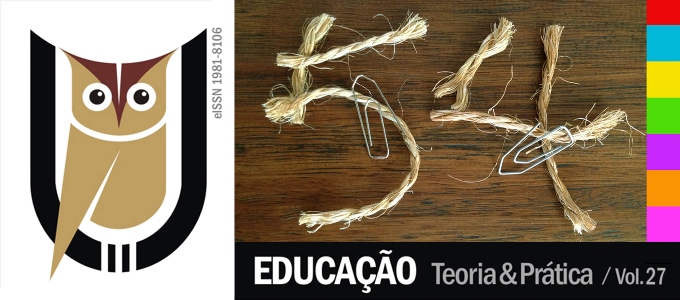ASSOCIATION BETWEEN AFFECTS AND REPRESENTATIONS INVOLVED IN THE SCHOOL LEARNING ENVIRONMENT
DOI:
https://doi.org/10.18675/1981-8106.vol27.n54.p74-94Keywords:
Positive Psychology. Interpersonal relationships. Learning experiences.Abstract
This study assumes that the affective dimensions involves the process of planning and developing pedagogical practices and are an important factor in determining the nature of relations between the students and the various objects of knowledge. In this sense, the study aimed to analyze how students represent the affective aspects of both the teaching and learning process and what are their perceptions of the learning environment. The participants were 120 students of the 5th year of elementary school of public schools in the metropolitan region of Campinas, 60 of those students having satisfactory academic performance and 60 having learning disabilities. To gather the data, three instruments were used: “Psychopedagogical Educational Par Proof”, “AffectionsZanon Scale” and “Teacher Expectations Scale”. The results revealed that students with learning disabilities differ significantly from those with adequate performance. Students with learning difficulties establish fewer ties with the formal school learning and for their teachers and this portrays non-school situations while students with satisfactory performance have a better understanding of the expectations of their teachers and this shows that they have a more emotional relationship with the school environment. It is believed that this study contributes to the understanding of the relationship between the feelings experienced by students in the context of the classroom and its implications for the academic performance of the same. Keywords: Positive Psychology. Interpersonal relationships. Learning experiences.Additional Files
Published
How to Cite
Issue
Section
License
Authors who publish in this journal agree to the following terms:
a) Authors assign copyright to the journal, with the work simultaneously licensed under the Creative Commons Attribution License that allows sharing of the work with acknowledgment of authorship and publication in this journal.
b) The policy adopted by the Editorial Committee is to assign copyright only after a period of 30 months from the date of publication of the article. After this time, authors interested in publishing the same text in another work must send a letter to the Editorial Committee requesting the release of the assignment of copyright and wait for a response.
c) This journal provides public access to all its content, since this allows greater visibility and reach of published articles and reviews. For more information on this approach, visit the Public Knowledge Project, a project that developed this system to improve the academic and public quality of research, by distributing OJS as well as other software to support the public access publication system to academic sources. The names and email addresses on this website will be used exclusively for the purposes of the journal and will not be available for other purposes. This journal provides open any other party  This work is licensed under a Creative Commons License
This work is licensed under a Creative Commons License











